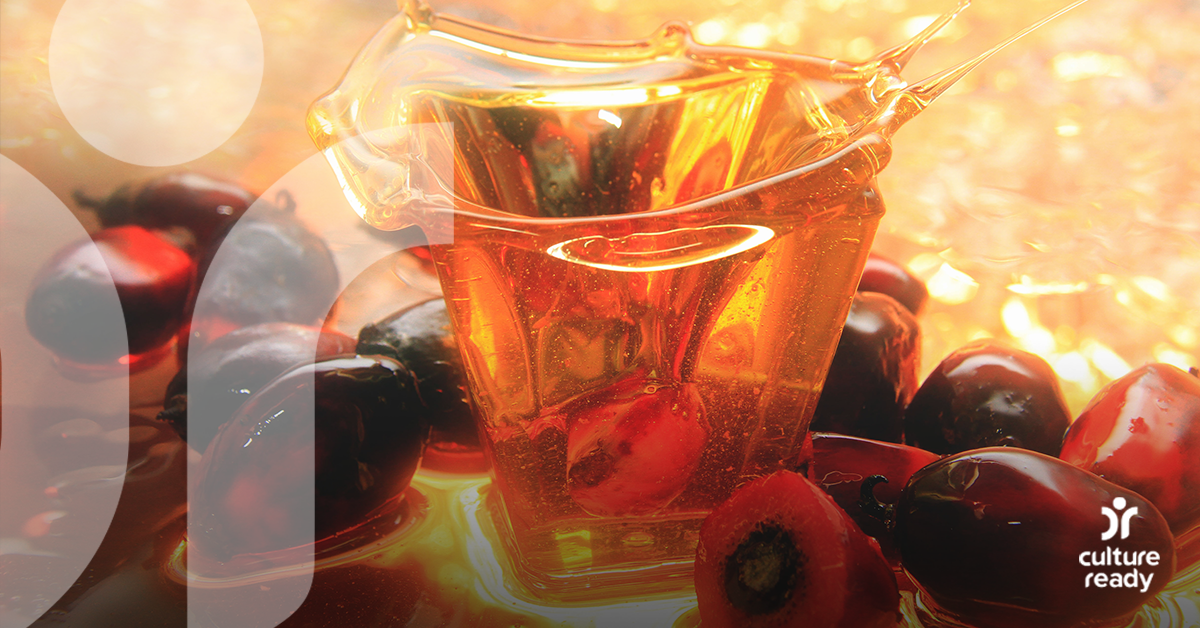Brazil’s Sacred and Flavorful Red Dendê Oil
Known locally as “azeite de dendê,” dendê oil, is made from the small fruit of the dendezeiro tree. You may hear people call dendê oil “red palm oil,” but that description is incorrect. Palm oil comes from the seeds, whereas dendê oil comes from the fruit, which gives it its vibrant, red-orange color.
Starting in the 16th century, Portuguese colonizers transported five million enslaved people from Africa to Brazil against their will. One-fifth of the slaves landed in Bahia. During this era, the seeds of the dendezerio tree were also brought to the region, and the trees flourished in the humid Brazilian climate.
One popular dish made as an offering for the orixás is acarajé—black-eyed peas, onions, and peppers mixed into fritters then fried in dendê oil. When not prepared for religious reasons, people enjoy acarajé as street food.
Making and eating acarajé is a daily ritual for the citizens of Salvador, Bahia’s capital. Women wearing traditional white dresses and headscarves prepare it at outdoor tables every afternoon.
High-end restaurants also use dendê oil to prepare Bahian dishes such as moqueca, a lime-marinated fish baked with tomatoes, peppers, onions, garlic, coconut milk, cilantro, and chilis.
Chefs specializing in Bahian cuisine insist there is no adequate substitute for dendê oil. However, it can be difficult to acquire because of the lack of technology used to harvest the fruit and the fact that the oil is processed by hand.
Learn More:
Brazil's Bright Red Dendê Oil
Dendê Oil is the Key to Afro-Brazilian Cuisine
